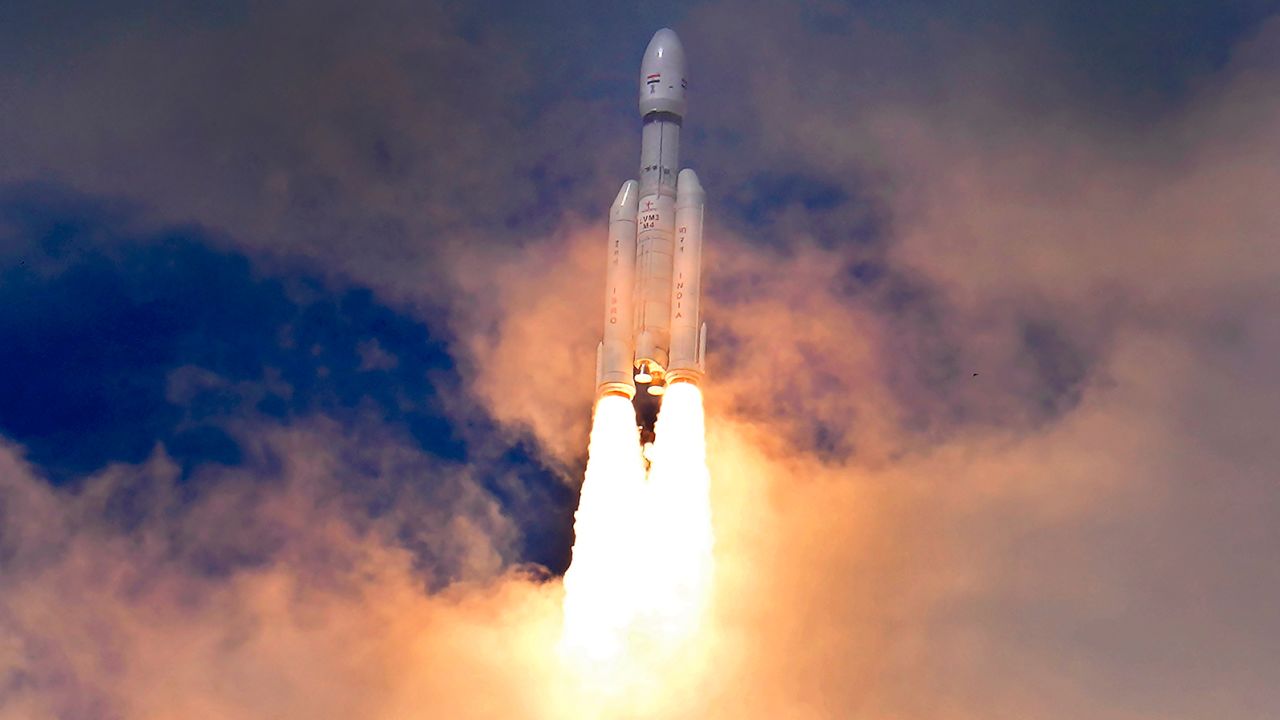India moved one step closer to executing a controlled landing on the moon after its Chandrayaan-3 spacecraft entered lunar orbit over the weekend, inching toward the surface’s unexplored South Pole.
The Indian Space Research Organization confirmed the spacecraft also “successfully underwent a planned orbit reduction maneuver,” in an update Sunday on X, formerly known as Twitter. “The retrofiring of engines brought it closer to the Moon’s surface.”
The craft is expected to land on the moon on August 23. If successful, it would make India only the fourth country to achieve the complicated feat, behind the United States, the former Soviet Union and China.
Developed by the Indian Space Research Organization (ISRO), Chandrayaan-3 is comprised of a lander, propulsion module and rover. Its aim is to safely land near the challenging terrain of the moon’s South Pole, collect data and conduct a series of scientific experiments to learn more about the moon’s composition.
It blasted off from the Satish Dhawan Space Center at Sriharikota in southern Andhra Pradesh state on July 14, elevating India’s space ambitions and cementing its status as a growing hub of innovation and technology.
It’s India’s second attempt at a soft landing, after its previous effort failed with the Chandrayaan-2 in 2019. Its first lunar probe, the Chandrayaan-1, orbited the moon and was then deliberately crash-landed onto the lunar surface in 2008.
Indian engineers have been working on the project for years.
India’s maiden lunar mission, Chandrayaan-1, discovered water molecules on the moon’s surface. Eleven years later, the Chandrayaan-2 successfully entered lunar orbit but its rover crash-landed on the moon’s surface. It too was supposed to explore the moon’s South Pole.
India’s space program dates back more than six decades, to when it was a newly independent republic and a deeply poor country reeling from a bloody partition.
When it launched its first rocket into space in 1963, the country was no match for the ambitions of the US and the former Soviet Union, which were way ahead in the space race.
Now, India is the world’s most populous nation and its fifth largest economy – and its space ambitions have been playing catch up under Modi.
“Chandrayaan-3 scripts a new chapter in India’s space odyssey,” Modi tweeted shortly after it took off last month.
“It soars high, elevating the dreams and ambitions of every Indian. This momentous achievement is a testament to our scientists’ relentless dedication. I salute their spirit and ingenuity!”
India has since spent about $75 million on its Chandrayaan-3 mission.


